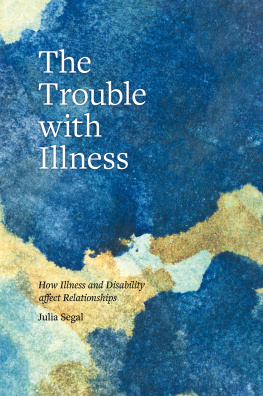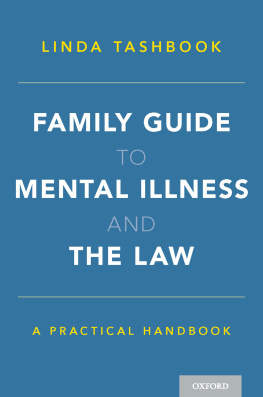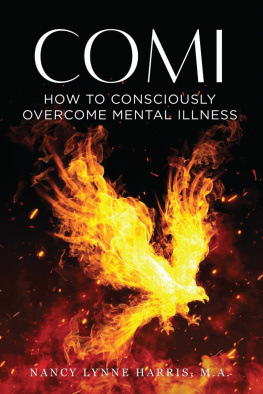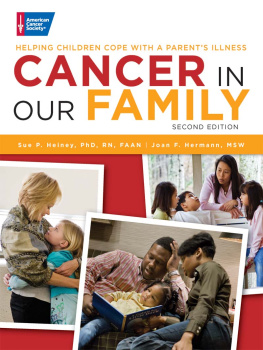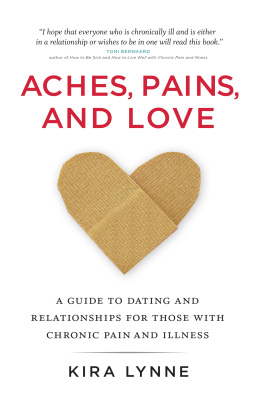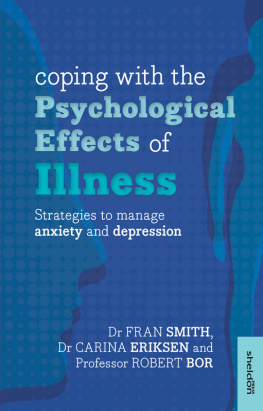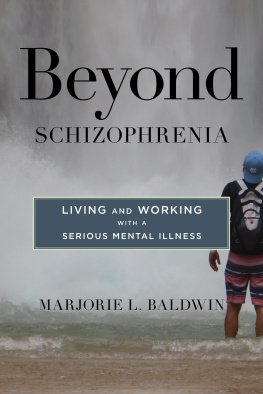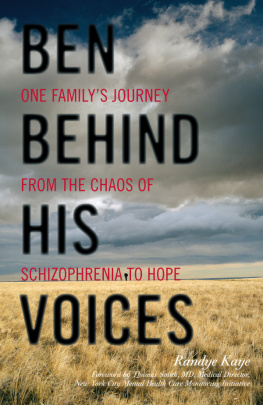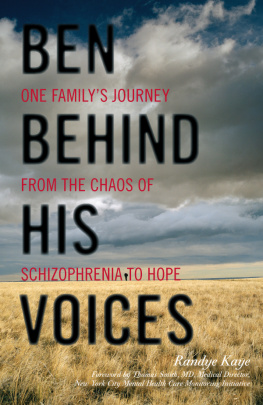
The Trouble
with Illness
How Illness and Disability
Affect Relationships
Julia Segal

Jessica Kingsley Publishers
London and Philadelphia
Contents
Introduction
Illness and disability wrong-foot not only those who have them, but also anyone who comes into contact with them. Family and professionals, children and adults, friends and neighbours all find themselves thinking uncomfortable thoughts, and having uncomfortable feelings, saying the wrong thing or awkwardly avoiding saying anything which feels just as bad as a result of the discomfort caused by an illness. This discomfort may not be named. Children and young people with ill parents may not recognise it for what it is for many years and may misattribute the wrongness actually caused by the illness or disabling condition to themselves, their own failings. These feelings can be buried they do not make up the whole of life. Meanwhile, life can be enjoyed, and there may be plenty of pleasures to distract and to contribute to a good life. But free, open communication can be inhibited and this can interfere with long-term relationships. Relationships with sexual partners, with employers (who can take the place of a parent) and with friends, and between professionals and their clients, can all be affected by the way shameful feelings arising originally in connection with an illness interrupt communication. It is easier to cut off uncomfortable feelings than to admit their presence, but this may mean cutting off communication with some part of the self. A distance is set up: lovers feel they are excluded in some way; relations with other people can become strained; there is a sense of being uncomfortable in ones own skin. Worse, other people can be made to feel guilty, ashamed or bad as a means of getting rid of ones own such feelings into them.
If people recognise this situation and allow themselves to own the conflicting feelings which the illness or disability arouses, if they can share the shame or the guilt, they can reduce the enormity of their feelings towards this bad self, so it no longer has to be denied (Im not like that! Thats not me!). No longer having to cut off awareness of this bad self, they may also find it easier to remain in touch with the ill person and with a carer partner too, perhaps. Professionals find it easier to go back to an ill client who makes them feel reproached and alienated if they recognise that the client also probably feels just as reproached and alienated, and that it might be possible to share such feelings and even laugh about them. Family members may be able to share and clear up guilty thoughts or feelings, face up to the anger aroused by the illness, rather than avoiding a more real emotional contact and leaving the ill person isolated, perhaps with an equally isolated carer partner. Adolescents generally hate to recognise conflicting feelings; they want the world to be clearly good or bad. But age can bring more tolerance for the fact that goodness and badness cannot be fully separated, and that good people have bad thoughts and feelings when someone is ill.
WHAT PEOPLE SAY ABOUT ILLNESS
Family
My mother was in pain a lot when I was a child. I didnt realise it was affecting me until my primary school headmistress met me in the street and asked me how my mother was, and I burst into tears. I was as shocked as she was.
Everything was fine until oh, three years ago. What was going on then? Oh, I suppose, that must have been when I was in hospital. They thought I was going to die.
He was wonderful while I was ill; he was there at the hospital every day, he looked after me and took care of everything. But I came home yesterday and he had gone. Hed taken everything.
My [seven-year-old] daughter doesnt care about my illness. She never asks anything. She doesnt seem bothered at all. Actually, she behaves as if she was much younger than she is. It drives me mad sometimes.
Youre on your own with it. Nobody really understands.
People always ask How is she? but they never ask how I am.
When I got ill again, my sister said about my husband, Oh, poor John! As if it was him that was ill! She always liked him better than she liked me. He couldnt bear me being ill; he always had to say Im ill too! when there was nothing wrong with him really.
Families feelings about professionals
I used to think, you know, you get ill, you go to the doctor, he gives you a pill and you get better. I got really angry with one doctor when I saw him six years ago, I wanted some answers and I thought he was just patronising me. But I now realise he actually didnt have any answers.
My GP says he will give me anything I want [to help my husband who is seriously ill and disabled with a long-term chronic disease] but I dont know what I want; I want him to tell me what to do, not ask me! How can I know? Im not a doctor!
The nurses come in and they know everything and they wont listen when we tell them, You have to do it this way. I can see shes hurting him when she moves him like that, but she wont take any notice of what I say.
Professionals feelings about families
Its difficult going to see Mrs X. You never know if she will be friendly and grateful for what you do, or if she is going to bite your head off.
Im finding it really hard to let go of Mrs Y. Theres nothing more we can do for her, but shes always so pleased to see us, and she is so sad, she looks so forlorn when we talk about stopping coming. Shes so alone.
The family are furious that we are not offering any more treatment. They think it means weve given up on him getting better. He might still improve, but it will be such a small improvement and will take so long and would require much more capacity for exercise than we think he has. They just want us in every day and we havent got the staff. I feel terrible about it, but theres no more we can do. They dont want to accept he will not get back to what he was, and they are taking it out on us.
I love my job. I love working with Z. She picks up whatever you offer her and when you come back the next week shes worked with it, something has changed. Its a wonderful feeling. She has so much to cope with, her life is so hard, shes in so much pain, but she has this incredible determination and capacity to think and to learn. Im not sure Id be as resilient as she is, in her circumstances.
ABOUT THIS BOOK
This is a book about the effects of living with illness and changing disability on the mind, on thoughts, on feelings and on the way people live their lives. It is about caring and being cared for, and about not caring and resisting dependency. It is a book for those who are interested in the way a changing health condition can affect relationships: through the understanding, assumptions, thoughts, beliefs, feelings and behaviour, not only of the person with the condition themselves, but also family, friends and professionals. It is about loving and being loved; about wanting to make someone better. It is also about hating illness and disability, about feeling useless and impotent and furious and frustrated, and about cutting off all feelings connected with illness or bodies. It is about recovering as well as about getting worse. It is about depending on the kindness of strangers; about fighting to maintain independence and normality; about the realities of losing aspects of your body and your mind, or those of someone you love or once loved. It is also about being professional in the face of illness, and the difficulties people can have in coping with professionals.
This book is not about physical and practical aspects of illness except insofar as they affect people emotionally. There are other books and websites which offer practical support and advice for particular conditions.
Next page
